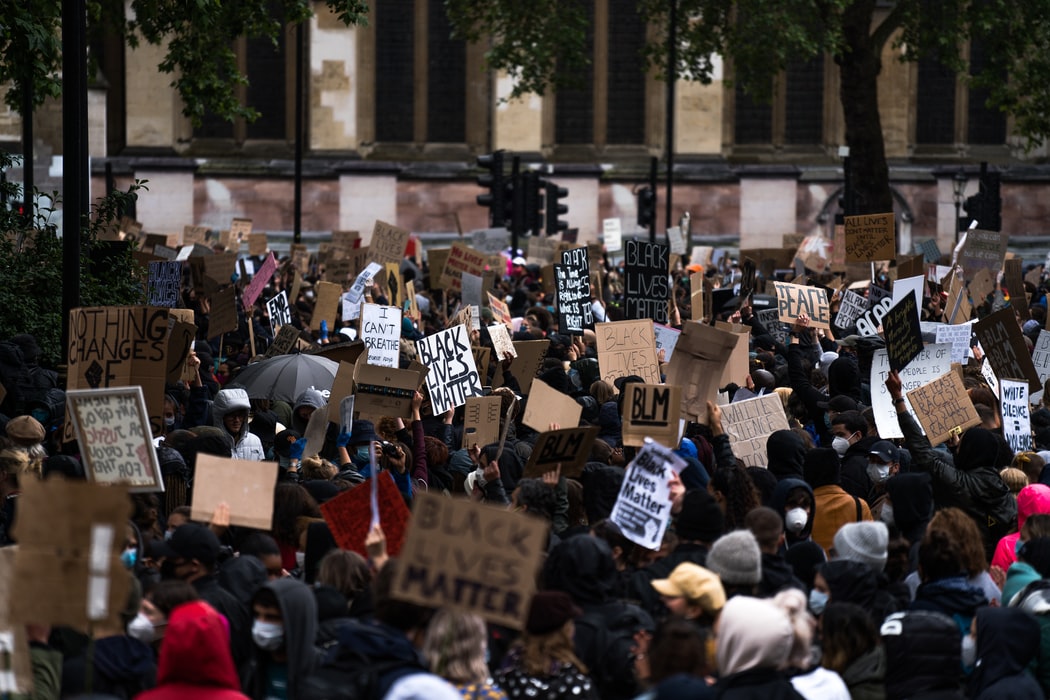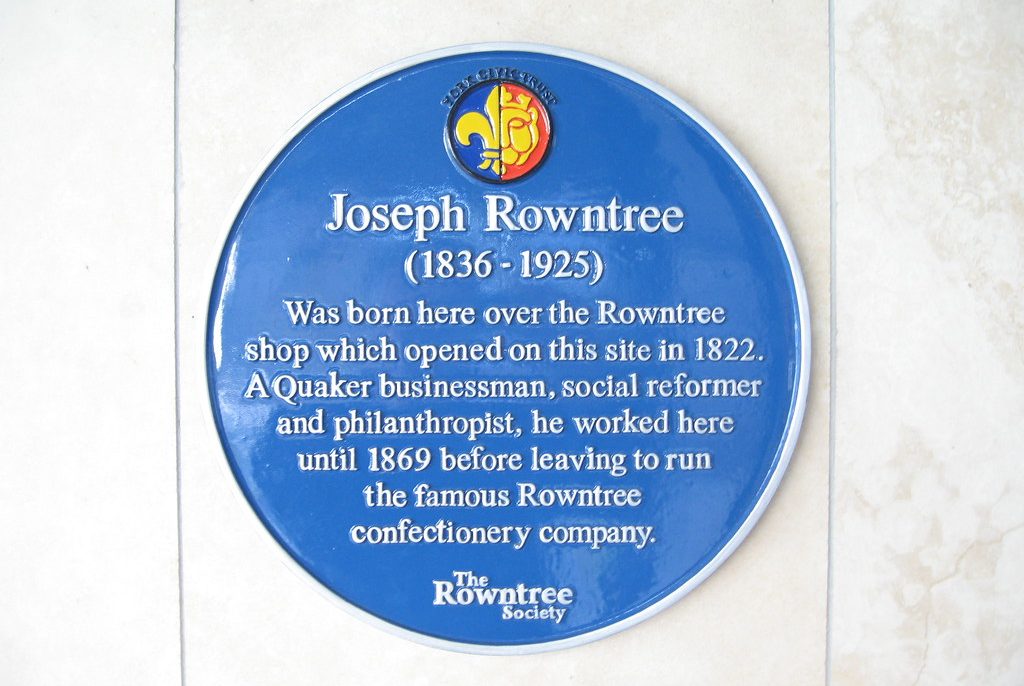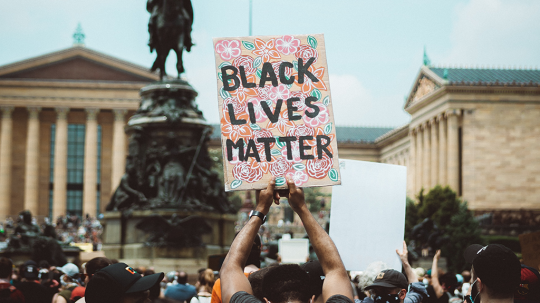Charities need to acknowledge and address their past so we can have an equitable future.
In a bid to confront and address their past, the Joseph Rowntree Foundation [JRF], which deals primarily with addressing poverty and income inequality, the Joseph Rowntree Charitable Trust [JRCT] and the Joseph Rowntree Reform Trust have published details of where the foundations of their wealth lie coupled with their colonial indenture.
The Joseph Rowntree Charitable Trust have today declared that the roots of the trusts’ wealth stems from “slavery, colonialism and white supremacy.” Research undertaken by the Rowntree Society found that “the Rowntree Company purchased cocoa and other goods produced by enslaved people” while the company itself “benefitted from the system of colonial indenture.” Wilson Rowntree, the South African subsidiary of the Rowntree Company, “was also responsible for highly oppressive and exploitative practices during the apartheid era.”
Yet despite the history of misery the three Rowntree trusts are now acknowledging lie in their past, there is still an element of hope.
For too long have people systemically ignored the role the slave trade had in building up wealth for philanthropy and how the tendrils of both can be felt in the inequality of today. Reparations also being discussed by the Joseph Rowntree Charitable Trust is a giant step towards an equitable platform in an industry where privilege has been skewed heavily towards one side.
Last year’s global Black Lives Matter laid bare the realities of institutional and systemic racism which courses through society. In particular, the charity sector had a reckoning when organisations started to confront the issues of diversity and racism within the industry.

Black Lives Matter protest in London, UK in 2020. (Credit: Unsplash/James Eades)
With 9% staff and 5% leadership in the charity sector being non-white, the industry must reconcile with where power lies. The Association of Chief Executives of Voluntary Organisations and Voice4Change reported that 50% of BAME charity workers surveyed felt that they needed to tone down behaviour or to be on their best behaviour to fit in the charity sector.
#CharitySoWhite sparked a conversation on the many ways in which racism operates within the charity sector. Rooted in the working experiences of people of colour and Black people, #CharitySoWhite seeks to tackle institutional racism in the sector. People from minority ethnic backgrounds are underrepresented in the charity sector. Although around 14% of the UK public is BAME, less than one in ten employees in the sector identify as such. After last year’s BLM global movement, the charity sector promised to address these issues.
For the Rowntree Trusts to investigate into their past while holding up their hands as accountability shows signs of progress. The charity sector’s mission is to support vulnerable people in our communities in different ways. Dismantling racism should be at the heart of that. But, racism didn’t start last year — it’s been ingrained and etched into the fabric of society for aeons.

A blue plaque in Pavement, York, to commemorate Joseph Rowntree’s birthplace (Credit: Creative Commons/Keith Seabridge)
Joseph Rowntree Charitable Trust said, “We acknowledge that we are a white-dominated organisation and that Black people, brown people and people of colour must shape this work. Our initial actions include:
- A commitment to sponsoring further research by the Rowntree Society to uncover more detail on the history of the Rowntree Company
- Implementation of a new organisational strategy for tackling power and privilege, which includes numerous actions to strengthen our governance, leadership, investments, grant-making and operations
- A commitment to identifying, listening to, and engaging with those communities directly affected by the harm caused by the Rowntree business, to develop a longer-term plan for restorative justice”
The Joseph Rowntree Foundation further elaborated, “Within JRF we want to work with others to make stretching plans to embed race equality within our work developing solutions to poverty and building public and political will for more action. This will include interrogating how we can better use our financial resources and our voice and influence as an investor, funder, and partner. For JRHT, we will explore how we can work with other housing associations and care providers as part of a coalition for positive change in the sector and in the communities we serve.”
For too long have people systemically ignored the role the slave trade had in building up wealth for philanthropy and how the tendrils of both can be felt in the inequality of today. Reparations also being discussed by the Rowntree Foundation is a giant step towards an equitable platform in an industry where the power and privilege have been skewed heavily towards one side.
Speaking to EachOther, Celia McKeon, chief executive at JRCT, said: “As a Trust with a long-standing commitment to supporting work for racial justice, we’ve listened to people of colour within the charity sector who have urged charities and funders to examine their histories and to tackle institutional racism. We have begun a process of reflection on the origins of our endowment and its implications for our work for racial justice.
“Today we are making two initial commitments. Firstly, we are taking a set of actions internally to strengthen our contribution to racial justice across all aspects of our organisation: our grant-making, investments, governance and operations. And secondly, we are committed to identifying, listening to and engaging with communities who have been affected by the harm caused by the Rowntree business, to develop a longer-term plan for restorative justice. We expect this to include a process of exploring and identifying forms of reparation which further our charitable purposes for the public benefit.

Joseph Rowntree Foundation #BetterJobs (Better Job Better Business) national conference at Northern Ballet (Credit:Creative Commons/jrf_uk)
“We hope that by honestly confronting our history, and embarking on a journey of restorative justice, we can begin to repair past harms in ways that support the ongoing struggle for racial justice today.”
Inequality is reinforced in the charity sector through pre-existing white supremacist structures and culture. Anti-racism work may be beginning now, but addressing the root causes of these structures goes back generations. As the Foundation put it, “Many of the injustices faced by Black and minority ethnic people in the UK are fuelled by attitudes similar to those used during imperialism to justify the worst forms of exploitation.”
Today’s announcement marks an important milestone for the charity sector and its organisations here in the United Kingdom. With an explicit apology, a process to address the situation, discussing reparations with plans on how to move forward with all of this in mind, the Joseph Rowntree Charitable Trust has set the benchmark for others to follow. The question now remains will other organisations match that? Or even surpass it?
Disclaimer: The Joseph Rowntree Charitable Trust are a current funder and supporter of EachOther.





